
Dave Ramsey is a well-known financial expert who provides quality advice to individuals of all ages. From money-saving tips to insights for new home buyers, Ramsey offers applicable information that can help you reach a place of financial security and even freedom.
We’ve already created a list of Dave Ramsey quotes about shopping, but here are 10 Dave Ramsey quotes specifically about buying a home.
1. “You don’t want to have so much money going toward your mortgage every month that you can’t enjoy life or take care of your other financial responsibilities.”

- Source: Dave Ramsey
Takeaway: Don’t Pursue a Mortgage Above Your Budget
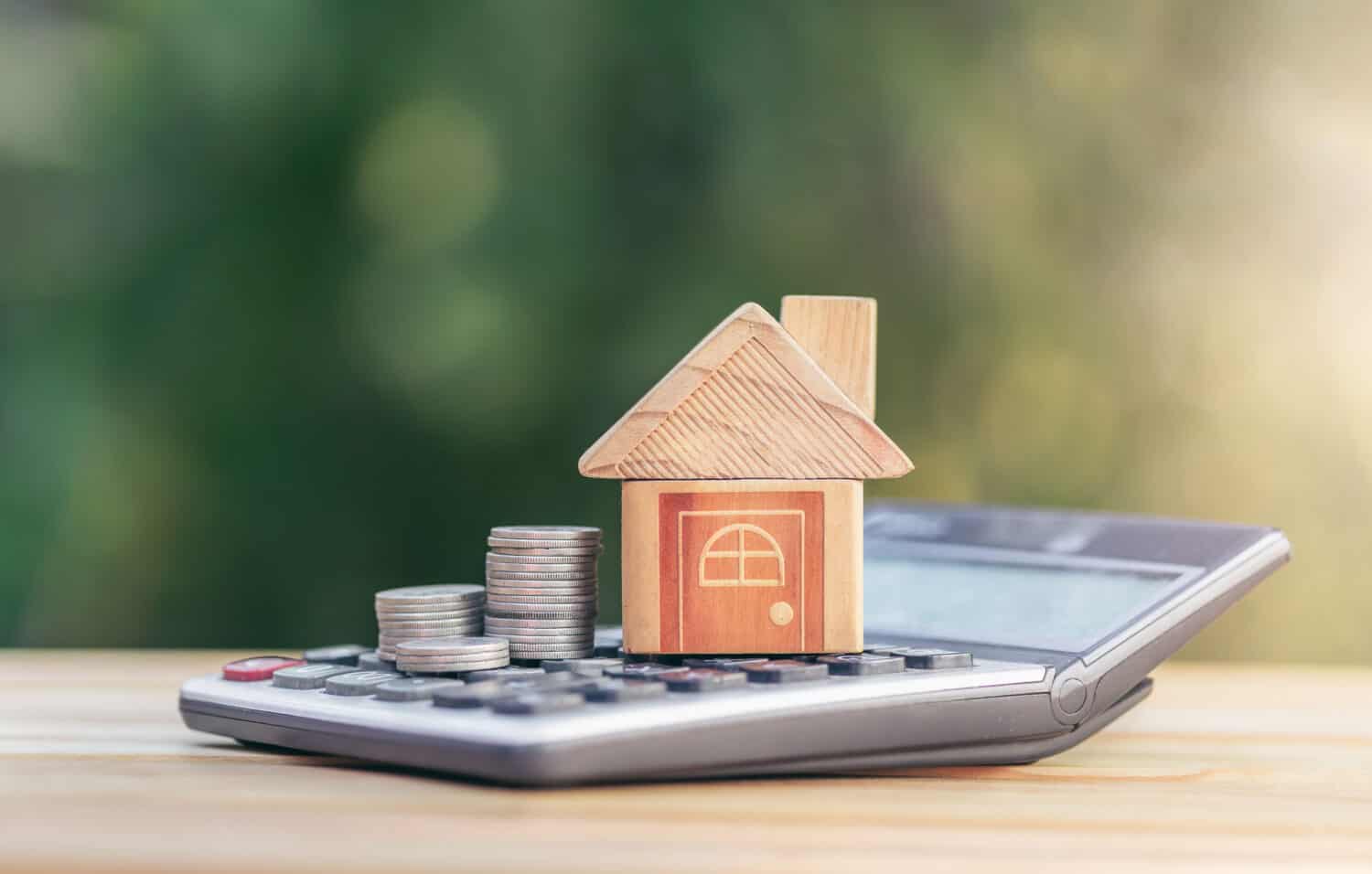
While purchasing a home is one of the most important decisions you’ll ever make, it’s crucial not to invest in a home that’s priced above your means. For example, if you’re pursuing a mortgage that’s so high that you’ll barely be able to make ends meet elsewhere in your life, you won’t even be able to enjoy your home. The stress of financial insecurity can be all-consuming if your mortgage is far above your budget.
That being said, your mortgage should be a rate you can comfortably cover without drastically changing your lifestyle. Make sure you leave enough in your budget after paying your mortgage to pay for other basic expenses.
2. “While I encourage people to save 100% down for a home, a mortgage is the one debt that I don’t frown upon.”

- Source: Dave Ramsey
Takeaway: Don’t Feel Bad About Having a Mortgage

With this quote, Ramsey reminds us not to fret about having a mortgage. Of course, if you can put 100% down on a home, do so. However, it’s highly unlikely that this is the case for most people.
While Ramsey — and all of us, really — doesn’t like the idea of debt, he doesn’t frown upon mortgage debt, as this is an unavoidable debt for most people. If you waited until you could put 100% down on a home, you likely would never purchase one. Some debts are inevitable. The important part about having a mortgage is ensuring it isn’t above your budget and you can still live comfortably.
3. “A vacation home is a wonderful ‘extra’ as you start building wealth. Remember, though, it’s still basically a very large, very expensive toy.”

- Source: Dave Ramsey
Takeaway: Don’t Purchase a Vacation Home If You Don’t Have the Budget to Cover It

While a vacation home is a perk that most people can get behind, it’s an extra — and oftentimes unnecessary — expense. Unless you absolutely have the means to afford an extra home, while still living comfortably and paying your mortgage and other bills, you shouldn’t splurge on a vacation home.
View vacation homes as expensive toys, as Ramsay states. In other words, acknowledge how expensive a vacation home would be and how much it would impact your budget and finances in other areas of your life. If you can’t comfortably afford it, do not invest in it — no matter how much you might want to.
4. “There is nothing wrong with having nice things, but when you are trying to buy nice things to be happy, you are going to hurt. It’s not going to work.”

- Source: Dave Ramsey
Takeaway: Purchase a Home You Love — and For the Right Reasons

Similar to the previous quote, this Ramsey quote acknowledges that it’s not a bad thing to purchase an expensive house or invest in a vacation home. However, if this comes at the expense of your financial security, you likely won’t feel as fulfilled as you might think.
While there’s nothing inherently wrong with desiring nice things, if you’re doing it for the wrong reasons, such as to fill a void or impress other people, you will likely fall short of your goal. This can be a costly mistake. Try your best to live within your means — especially when it comes to purchasing a home. Additionally, search for fulfillment in intangible things, such as your relationships with others and the stability you cultivate in your life.
5. “Most of the things we buy are wants. And we call them needs, but they’re wants.”

- Source: Dave Ramsey
Takeaway: Buy What You Need Before Buying What You Desire
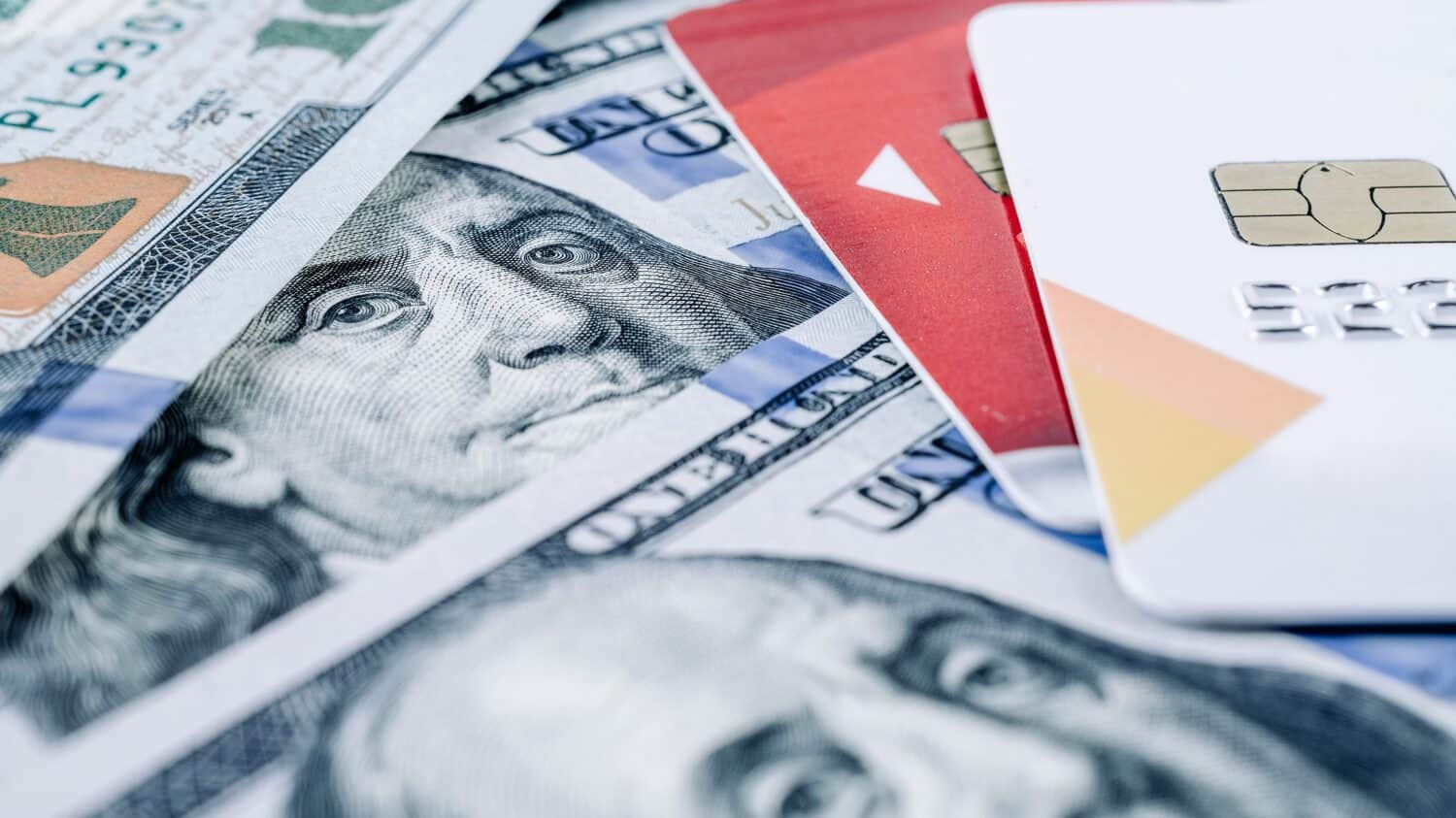
Like the quote above, this Ramsay quote calls out our desire to purchase items we don’t need. While it is nice to invest in products we want, such as nice clothing or a luxurious vacation home, ask yourself if it is a worthy investment. For example, if you’re struggling to put food on the table, but have no problems spending money on expensive designer accessories or frequent nights out on the town, you should revisit your budget and eliminate unnecessary costs. This will help free up money that you can put toward your mortgage, opening your budget for a better-suited home. Prioritize what truly matters, and if you have excess money, then you can spend it on your desires. Cover the necessities first.
6. “Your house payment (including principal, interest, property taxes, home insurance, PMI and homeowners association fees) should be no more than 25% of your take-home pay. If your payment is more than that, you’ll end up being house poor.”

- Source: Dave Ramsey
Takeaway: Follow the 25% Rule

According to Ramsey, your house payment should not exceed more than 25% of your take-home pay. Following this rule will help you avoid financial struggles when covering your mortgage. In other words, be sure you’re not purchasing a home that is above your means.
While it might be tempting to secure your dream home the first time around, if it is not within your budget, you should not make the purchase. This can lead to an abundance of financial issues, such as becoming “house-poor.” In other words, all of your money will go toward your home while you struggle to make ends me elsewhere. Instead of your house being a beautiful blessing, it will end up as a financial burden.
7. “Try to save at least 20% of the home price for a down payment. As a first-time home buyer, it’s okay to only save 5–10%.”
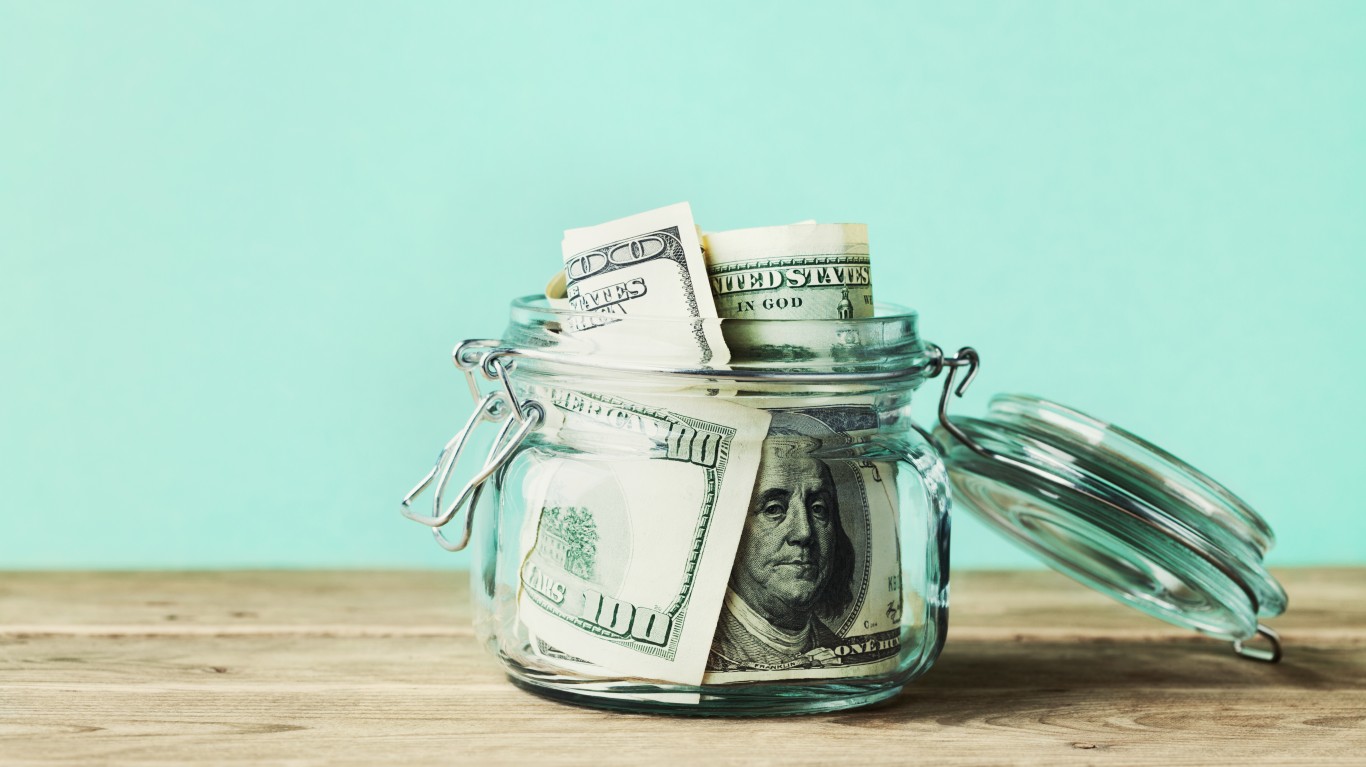
- Source: Dave Ramsey
Takeaway: Aim for a 20% Down Payment

Ramsey believes you should put down at least 20% of your home’s price as a down payment. However, he also acknowledges that first-time home buyers might not have the financial means to invest that much upfront. That being said, he recommends a minimum of 5% to 10%, which he deems an acceptable down payment for a new homeowner.
However, the more you can put down, the lower your mortgage payments will be and the less he will struggle with keeping up with your payments. Ultimately, save as much as possible before buying your home so you’re in good shape when it comes time to get a mortgage.
8. “Don’t give into the temptation to buy a home you can’t afford.”

- Source: Dave Ramsey
Takeaway: Don’t Purchase a Home That’s Outside of Your Budget
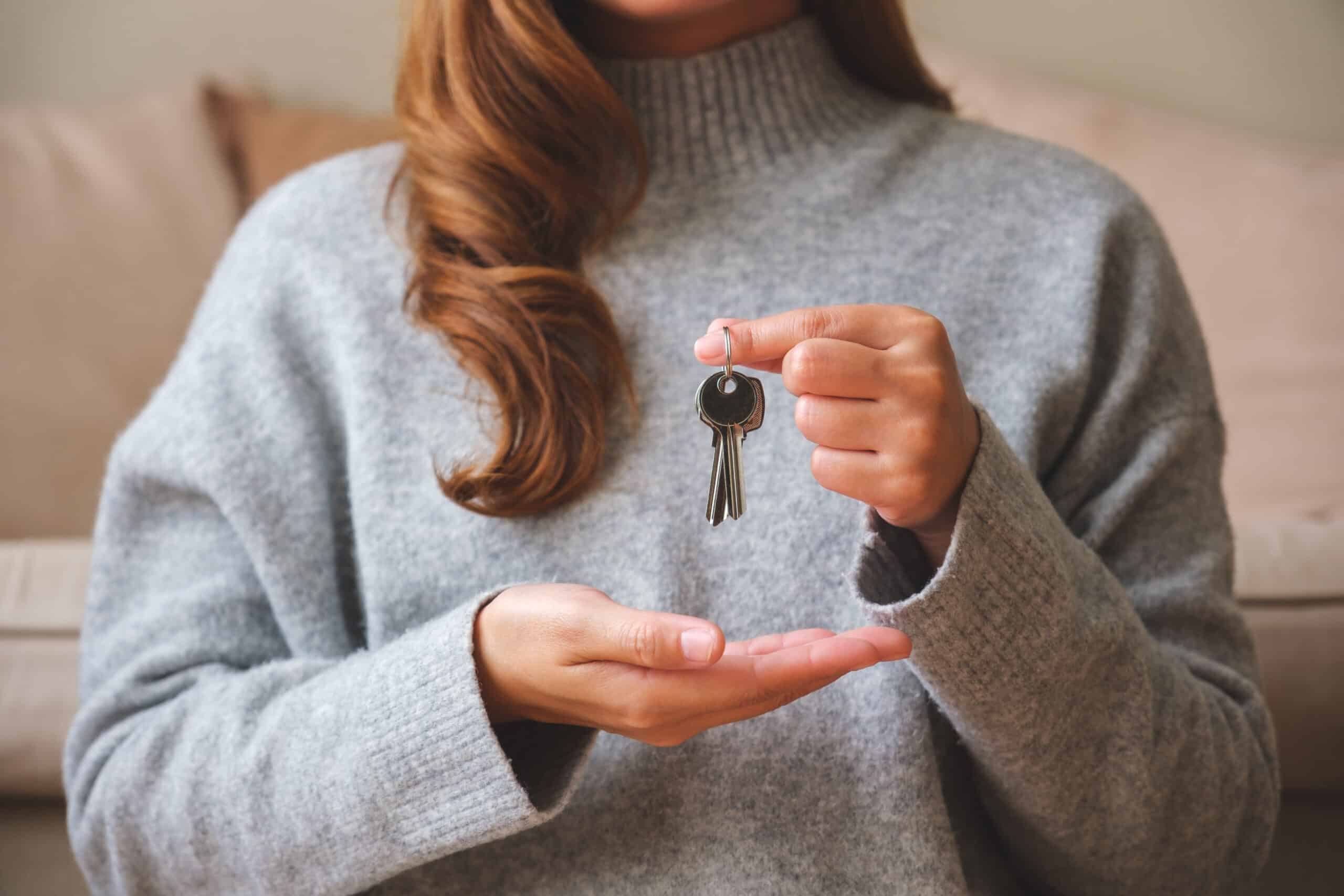
While it might be tempting to purchase your dream home as-is (meaning at the listed price above your budget), don’t invest in a home that’s far above your means. This will only lead to financial troubles that will ultimately take away from the magic of your new home. As stated earlier, your home might become a financial burden rather than a solace or loving place for you and your family. Trust you will find a suitable home within your ideal price range.
9. “Buying a house is stressful, but being debt-free will lower your stress level like a day at the beach (assuming no sharks are spotted).”

- Source: Dave Ramsey
Takeaway: Focus on Reaching No Debt

While purchasing a home is a stressful endeavor, it is a worthwhile investment that will pay off in the long run. Rather than throwing away your money by renting an apartment, townhouse, or condo, investing in an actual property — if it is within your means — will ensure your money is going towards something more worthwhile. Once you’re able to become debt-free, you’ll feel much less stress in your day-to-day
10. “You want an agent you can trust—one who has lots of experience and can guide you through every step of the home-buying process. Just because Uncle Ron is a part-time agent, that doesn’t mean he should be your agent.”

- Source: Dave Ramsey
Takeaway: Choose the Right Agent
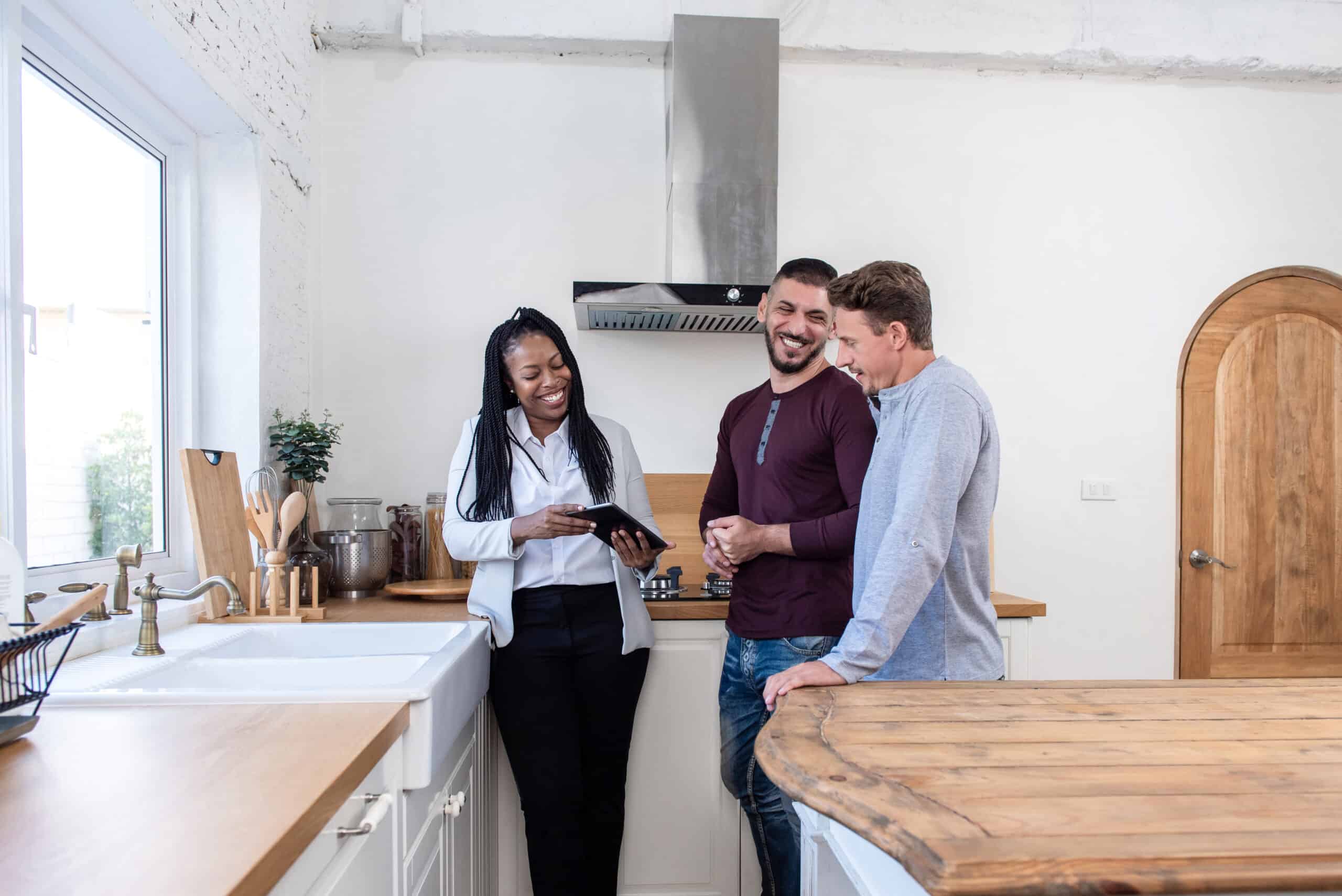
When househunting, you might be tempted to choose a realtor you know on a personal level. Perhaps you have a realtor who’s a friend or a family member; regardless, just because you know this person personally does not mean you should use them as your realtor.
Instead, you want to choose someone who has the proper experience and can actually guide you through the process of buying a home with the necessary knowledge. Don’t settle for just any realtor — be picky in your selection.
Why We Are Covering This
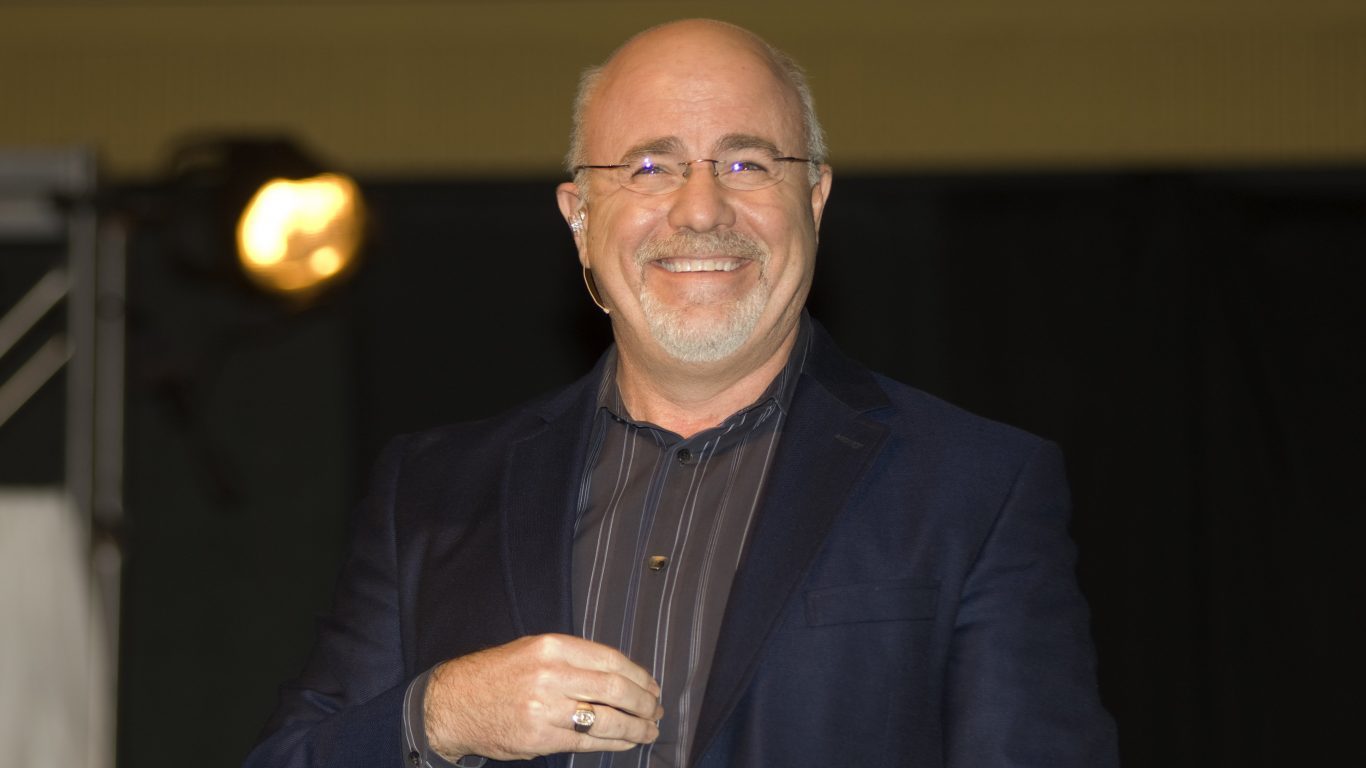
As host of The Ramsey Show, Dave Ramsey is a trusted financial expert who provides applicable and seasoned advice to individuals of various wealth levels. His advice is especially helpful when it comes to making major purchases, such as a home.
Travel Cards Are Getting Too Good To Ignore (sponsored)
Credit card companies are pulling out all the stops, with the issuers are offering insane travel rewards and perks.
We’re talking huge sign-up bonuses, points on every purchase, and benefits like lounge access, travel credits, and free hotel nights. For travelers, these rewards can add up to thousands of dollars in flights, upgrades, and luxury experiences every year.
It’s like getting paid to travel — and it’s available to qualified borrowers who know where to look.
We’ve rounded up some of the best travel credit cards on the market. Click here to see the list. Don’t miss these offers — they won’t be this good forever.
Thank you for reading! Have some feedback for us?
Contact the 24/7 Wall St. editorial team.


